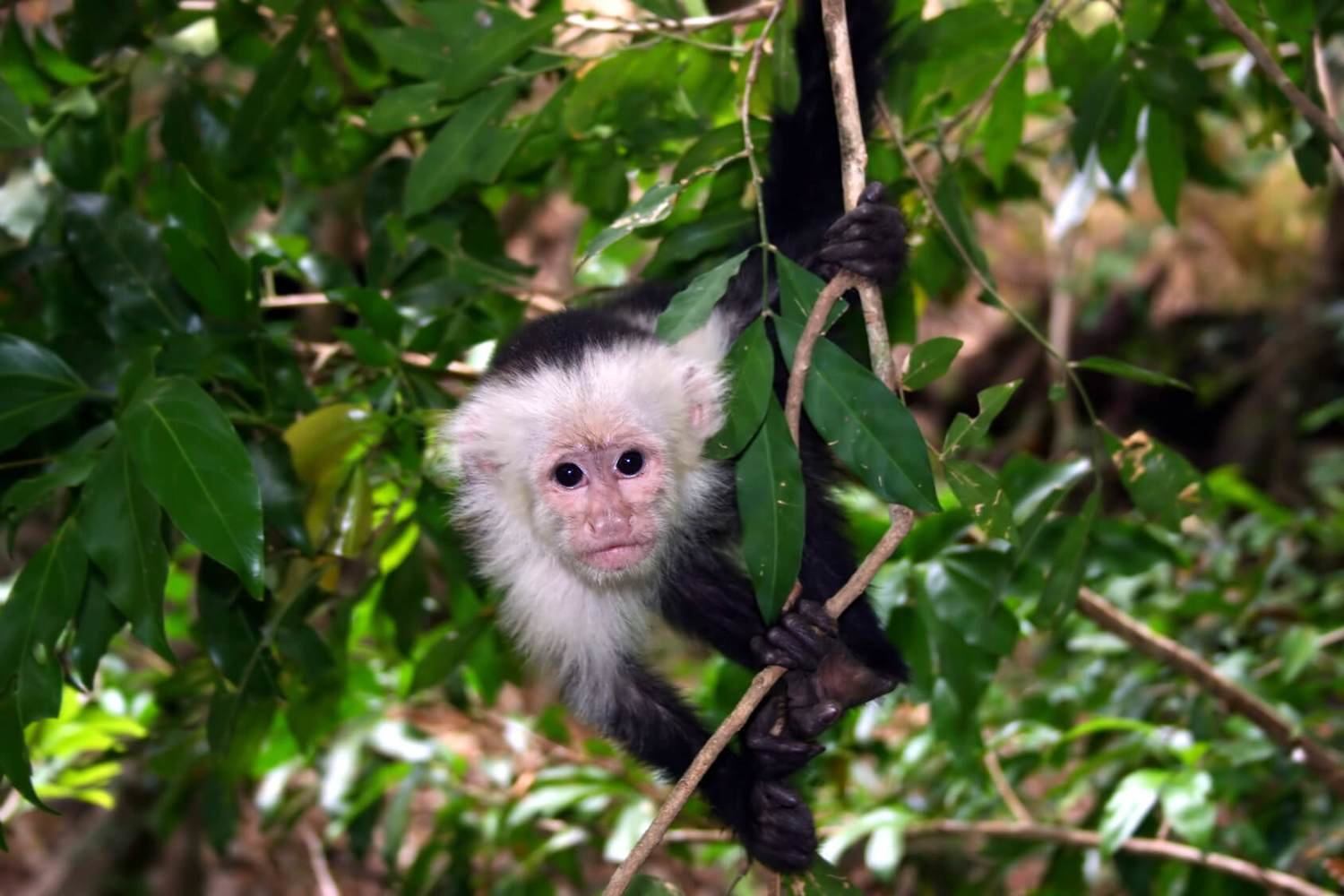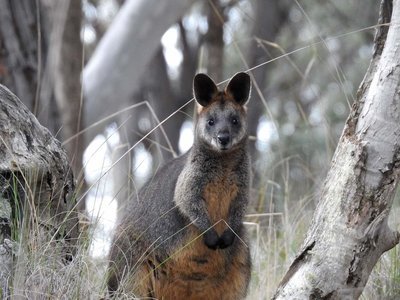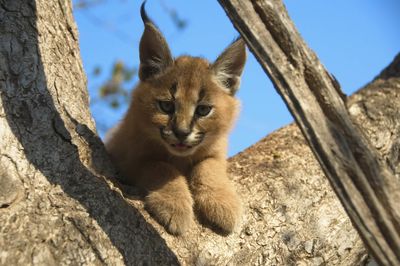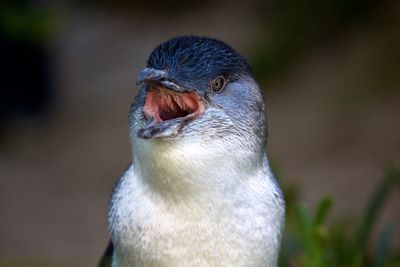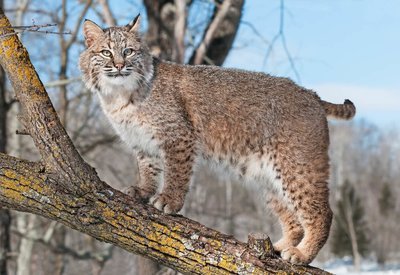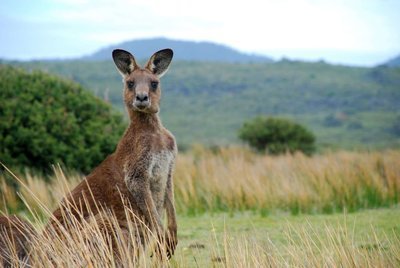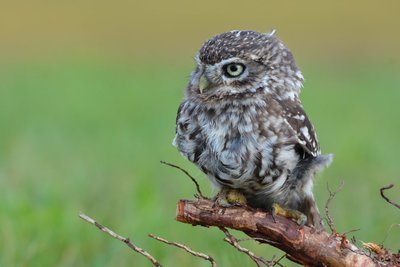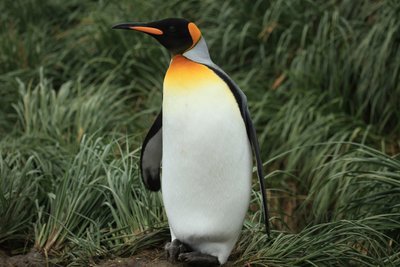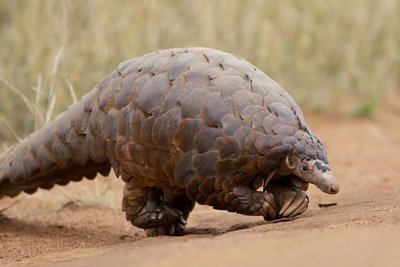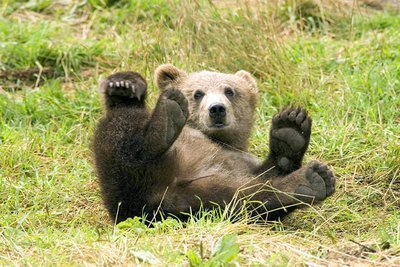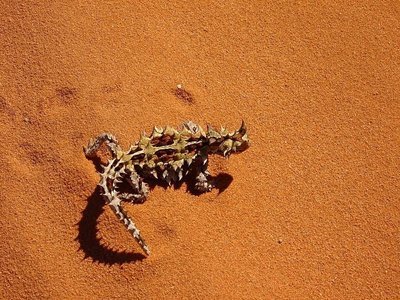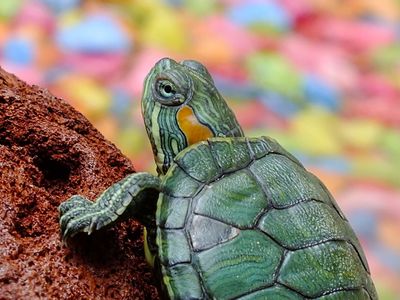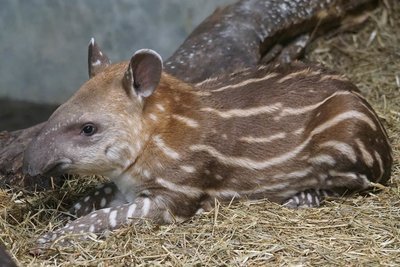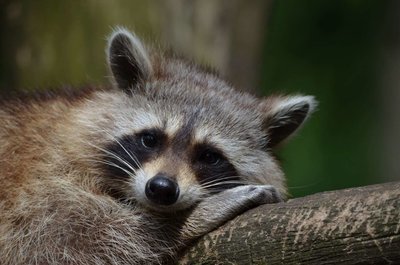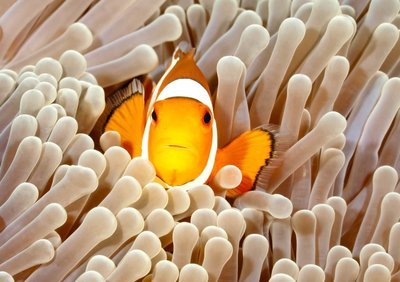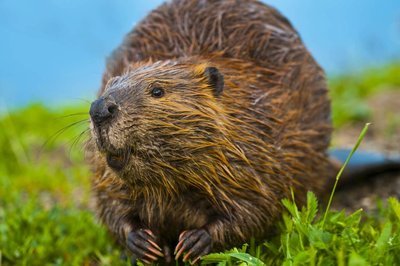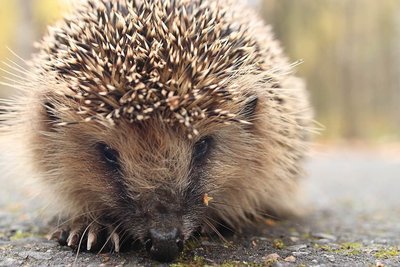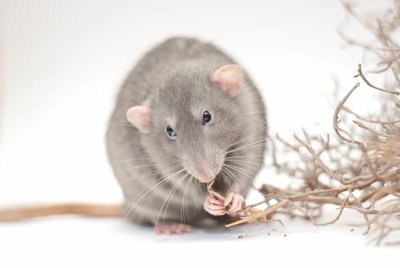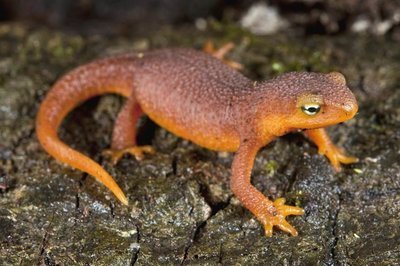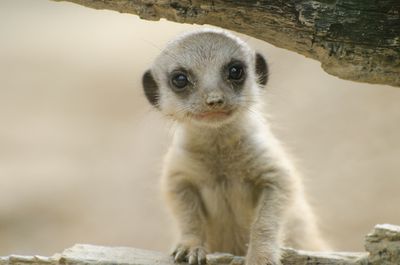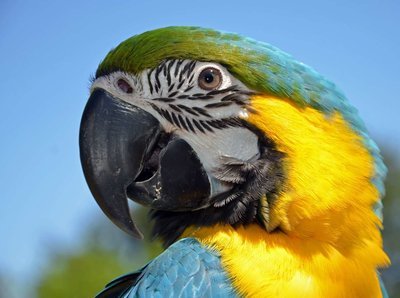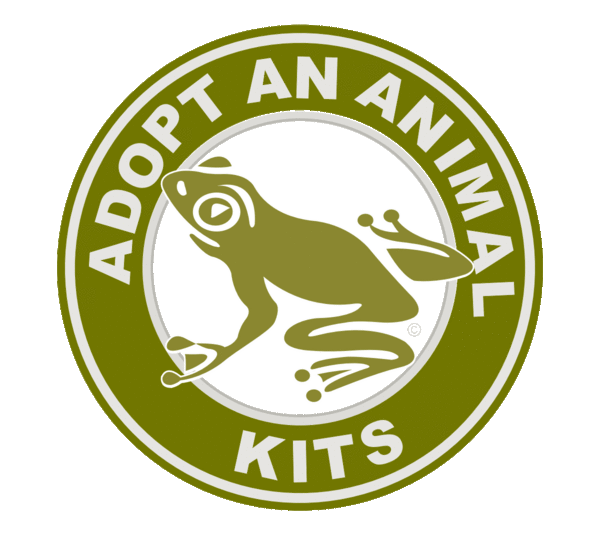

Adopt An Animal Kits
Adopt An Animal symbolically. Your Adopt An Animal Kit comes in a Deluxe Folder and includes: Glossy Photo of Your Adopted Animal; Adopt An Animal Adoption Certificate; Fact Sheet About Your Adopted Animal; Help Animals Info Cards Packed With Information On Animal Issues & How You Can Help Animals And The Environment. Adopt An Animal for Yourself or as a Gift.
Adopt A Capuchin
Adopt A Capuchin
Your Adopt A Capuchin Kit comes in a Deluxe Folder and includes:
- Glossy Photo Of Your Adopted Capuchin
- Adopt A Capuchin Adoption Certificate
- Fact Sheet About Your Adopted Capuchin
- Help Animals Info Cards Packed With Information On Animal Issues & How You Can Help Animals And The Environment
Adopt A Capuchin Kits make great gifts and can be sent directly to the recipient. Simply supply the recipient's name and mailing address as shipping information. We'll even include a letter stating the Adopt An Animal Kit is from you.
Adopt An Animal symbolic adoption is a one time fee. Adopt an animal for yourself or order an Adopt An Animal Kit as a gift. Help make a difference for animals - Adopt An Animal Today!
Adopt A Capuchin
The capuchins are the group of New World monkeys classified as genus Cebus. Their name comes from their coloration, which resembles the cowls worn by the Capuchin order of Roman Catholic friars. Cebus is the only genus in subfamily Cebinae. The range of the capuchin monkeys includes Central America (Honduras) and middle South America (middle Brazil, eastern Peru, Paraguay).
Capuchins generally resemble the friars of their namesake. Their body, arms, legs and tail are all darkly (black or brown) colored, while the face, throat and chest are white colored, and their head has a black cap. This general pattern varies from species to species, as well as among individuals within a species. They reach a length of 12 - 22 inches, with tails that are just as long as the body. They weigh up to 2 lb, 13 oz.
Like most New World monkeys, capuchins are diurnal (active during the day) and arboreal (living in trees). With the exception of a midday nap, they spend their entire day searching for food. At night they sleep in the trees, wedged between branches. They are undemanding regarding their habitat and can thus be found in many differing areas. Among the natural enemies of the capuchins are large falcons, cats and snakes.
The diet of the capuchins is more varied than other monkeys in the family Cebidae. They are omnivores, eating not only fruits, nuts, seeds and buds, but also insects, spiders, bird eggs and small vertebrate. Capuchins living near water will also eat crabs and shells by cracking their shells with stones.
Capuchins live together in groups of six to 40 members. These groups consist of related females and their offspring, as well as several males. Usually groups are dominated by a single male, who has primary rights to mate with the females of the group. Mutual grooming, as well as vocalization, serves as communication and stabilization of the group dynamics. These primates are territorial animals, distinctly marking a central area of their territory with urine and defending it against intruders, though outer zones of these areas may overlap.
Females bear young every two years following a 160 to 180 day gestation. The young cling to their mother's chest until they are larger, when they move to her back. Adult male capuchins rarely take part in caring for the young. Within four years for females and eight years for males, juveniles become fully mature. In captivity, individuals have reached an age of 45 years, although life expectancy in nature is only 15 to 25 years.
Capuchins are considered extremely intelligent. The Tufted Capuchin is especially noted for its long-term tool usage. When it sees macaws eating palm nuts, cracking them open with their beaks, these capuchins will select a few of the ripest fruits, nip off the tip of the fruit and drink down the juice, then seemingly discard the rest of the fruit with the nut inside. When these discarded fruits have hardened and become slightly brittle, the capuchins will gather them up again and take them to a large flat boulder where they have previously gathered a few river stones from up to a mile away. They will then use these stones, some of them weighing as much as the monkeys, to crack open the fruit to get to the nut inside. Young capuchins will watch this process to learn from the older, more experienced adults. During the mosquito season, they crush up millipedes and rub the remains on their backs. This acts as a natural bug repellant. When presented with a reflection, capuchin monkeys react in a way that indicates an intermediate state between seeing the mirror as another individual and recognizing the image as self.
THREATS TO CAPUCHINS
PET CAPUCHINS
Thousands of primates are peddled as "pets" each year, including monkeys, apes and lemurs. Highly intelligent and social animals, they suffer terribly in the inhumane pet trade.
These wild animals are bred in captivity and taken from their mothers within hours or days of birth, or stolen from their mother in the wild who is often killed in the process. Sold like toys by unethical businesses and backyard breeders, profit is put above the welfare of the animals. Unprepared guardians purchase the animals, often with little knowledge on primate care. Adorable baby monkeys quickly grow into aggressive and territorial adults. Guardians often resort to drastic measures to control the animals, such as inhumane tooth removal. Eventually they are abandoned, given to roadside zoos or sold to another unprepared family where the cycle begins again. They end up living their lives in tiny cages, isolated, lonely, deprived of their wild nature and social interaction with their own kind.
The complex physical, psychological and social needs of primates can never be met when they are kept as pets. Living in constant frustration, these wild animals can inflict serious and catastrophic injuries. They can also spread diseases that are deadly to humans, including viral, bacterial, fungal and parasitic infections. It is common for monkeys to carry tuberculosis, hepatitis and simian herpes B.
Even the smallest of monkeys are incredibly strong and become unpredictable when they reach sexual maturity. Hundreds of people have been injured by attacks from primates, sometimes causing permanent disability and disfigurement.
CAPUCHINS USED IN RESEARCH
Every year thousands of monkeys are imprisoned in laboratories, where they are abused, neglected and killed in invasive and painful experiments. They are either bred in government or commercial facilities or laboratories, or captured from the wild. Those born in laboratories are torn from their mothers usually within three days of birth. Those from the wild are often taken from their mothers, who are sometimes killed. They are crammed into tiny crates with little to no food or water and taken to filthy holding centers, followed by long and terrifying trips in the cargo holds of passenger airlines. Following the traumatic separation from their families and/or homes, monkeys in laboratories are usually confined to small, barren cages. They barely have enough room to sit, stand, lie down or turn around.
90 percent of primates in laboratories exhibit abnormal behaviors caused by the physical abuse, psychological stress, social isolation and barren confinement that they are forced to endure. Many go insane, rocking back and forth, pacing endlessly in the cages, and engaging in repetitive motions and acts of self-mutilation.
Their fundamental needs and desires are disregarded and they are subjected to painful and traumatic procedures. Most animal experiments are not relevant to human health and do not contribute meaningfully to medical advances. Human clinical and epidemiological studies, human tissue and cell-based research methods, cadavers, sophisticated high-fidelity human patient simulators and computational models are more reliable, more precise, less expensive and more humane than animal experiments.
CAPUCHINS IN THE ENTERTAINMENT INDUSTRY
The use of monkeys as “entertainers” removes animals from their natural habitat; depriving them of the ability to freely engage in instinctual behaviors. Both children and adults are desensitized to animal mistreatment by the animal entertainment industry. Whether they're at a zoo, on a film set, or under a circus tent, monkeys used as entertainment are forced to perform unnatural and painful tasks through abusive training methods.
Animals used in film, television, advertising or as sports mascots are ripped away from their mothers as infants. They are forced to spend most of their lives in small cages. They often live alone, resulting in severe psychological anxiety. “Performing” is stressful, confusing and often torturous. Training methods may involve beating the animals, causing them to be constantly anxious and fearful. When the animals become too large to handle, they are often dumped at shoddy roadside zoos and other substandard facilities, where they spend the rest of their lives in small, barren cages—many in solitary confinement. “Retirement” from entertainment is a long life of misery for these highly intelligent and sensitive animals. The American Humane Association’s (AHA) “No Animals Were Harmed” seal of approval is extremely misleading. AHA does not monitor living conditions of animals off set, during pre-production training, or during the premature separation of infants from their mothers.
Circus animals are forced to travel in box cars or trucks for months at a time with no regard for temperature, exercise or normal interaction with their own kind. These animals do not willingly stand on their heads, jump through rings of fire, or ride bicycles. They don’t perform these tricks because they want to and they don’t do any of these meaningless acts in their natural habitat. They do not perform because they are positively reinforced. Instead, they are trained with varying levels of punishment, neglect and deprivation.
Even under the best of circumstances, captivity is cruel for wild animals. Confined to tiny areas and gawked at by crowds, animals in exhibits and acts endure constant stress. They may suffer from temperature extremes and irregular feeding and watering. Without exercise, they become listless, their immune systems are weakened, and they become prone to sickness; many resort to self-mutilation in reaction to stress or boredom. Mental illness is rampant among confined animals. Torn from their families and deprived of all dignity, every part of their lives is controlled by their captors.
While zoos may appear to be educational and conservation-oriented, most are designed with the needs and desires of the visitors in mind, not the needs of the animals. Many animals in zoos exhibit abnormal behavior as a result of being deprived of their natural environments and social structures. When the facility breeds too many animals they become "surplus" and often are sold to laboratories, traveling shows, shooting ranches, or to private individuals who may be unqualified to care for them.
Adopt Adopt An Animal Kits
Our Adopt An Animal Kits are educational packets that allow you to symbolically adopt a favorite animal species and contain a variety of information promoting the protection of wildlife, companion animals, farm animals and the environment. By purchasing a symbolic adoption kit you will receive a packet of information regarding daily choices you can make to help the earth and animals.
Your Adopt An Animal Kit comes in a Deluxe Folder and includes:
Glossy Photo Of Your Adopted AnimalAdopt An Animal Adoption CertificateFact Sheet About Your Adopted AnimalHelp Animals Info Cards Packed With Information On Animal Issues & How You Can Help Animals And The Environment.
Adopt an animal for yourself or order an Adopt An Animal Kit as a gift. Symbolically adopting an animal is the perfect gift for a loved one who loves animals, and helps to promote the compassionate treatment of animals and respect for the environment by offering information on how to help the earth and animals. Adopt An Animal Kits can be sent directly to the recipient: simply supply the recipient's name and mailing address as shipping information. We'll even include a letter stating the Adopt An Animal Kit is from you.
Adopt An Animal Kits is a small, independent business not affiliated with any other business, non profit or charitable organization.
Fast Shipping!
Shipping time for Adopt An Animal Kits averages 2 to 4 business days - USA. Allow additional time for Adopt An Animal Kits orders outside the USA. Your Adopt An Animal Packet will arrive approximately 2 to 4 business days following shipping date. Shipping for Adopt An Animal Kits within the USA is by U.S.P.S. Priority Mail.
INTERNATIONAL ORDERS: Average shipping time for Adopt An Animal Kits outside of the USA is 5 to 14 business days, including Canada. International Shipping & Handling for Adopt An Animal Kits is by U.S.P.S. First Class Mail.
About Us
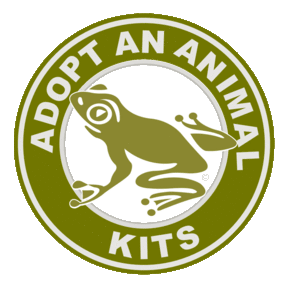
Adopt An Animal Kits, LLC
The world is teaming with an amazing diversity of animals. Some species are beautiful, others bizarre — but they all are important to the ecosystem and deserve our respect, compassion and protection. Unfortunately, many animal species are declining at a rapid rate as a result of irresponsible human activities. Habitat destruction, pollution, hunting, poor agricultural practices and changes in climate are among the threats faced by wildlife and domestic animals.
Adopt An Animal Kits, LLC is a small business who believes in promoting the advancement of compassionate living by educating the public about animal and environmental issues and what individuals can do to prevent cruelty to animals. Through our work, we strive to eliminate the prejudice of animals (speciesism) through educational efforts. Our business produces printed and printable educational materials available to individuals with an interest in earth and animal topics. Our Adopt An Animal Kits seek to educate and influence individuals on environmental and animal issues. The purchase of an Adopt An Animal Kit allows you to symbolically adopt your, or your loved one's, favorite animal species while promoting the protection of wildlife, companion animals, farm animals and the environment. Rather than adopting an indivdual animal, you are symbolicly adopting the species. Each kit contains a collection of information on how you or your loved one can make daily choices to help animals and the environment.
Our website provides an information portal regarding these issues. Information posted on the site is free of charge and available to anyone with an interest. Our printed and printable materials are available to individuals with an interest in earth and animal issues. We produce hundreds of fact sheets, flyers, and digital materials regarding environmental and animal issues. Most materials are available at no cost to anyone with an interest.
Adopt An Animal Kits, LLC is not a charitable or nonprofit organization.
